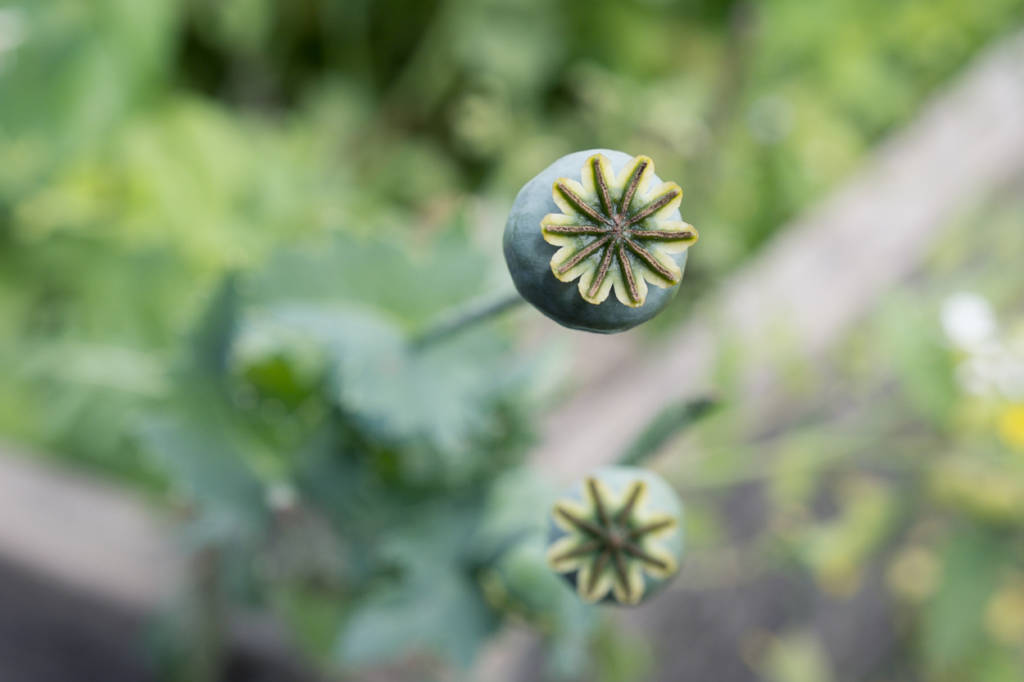
04.08.21

The Creative Practitioners will have six months to work in collaboration with local communities to research, learn, understand, imagine, co-develop and embed creative responses to better connect and equip the communities with place-based climate justice actions.
As well as working with their specific communities, they’ll all come together to share their learnings, develop their leadership skills and spark new collaborations and opportunities across the Tay region.
The commissions are six month long, starting late August 2021 until February 2022, and six further commissions will be open for application late 2021.
Last week, we’ve crossed the region from side to side to meet with the newly commissioned Creative Practitioners and their Community Partners in person–here’s a snapshot!
#CultivateTay
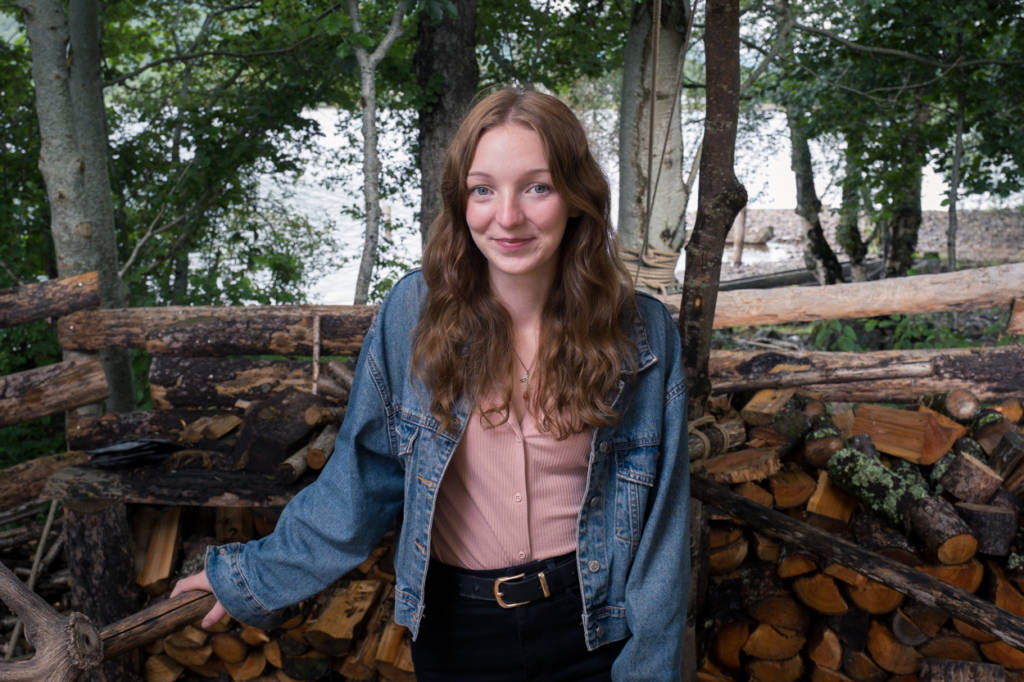
The Scottish Crannog Centre cares for and makes accessible the finds of Scottish Crannog dwellers, making sure there are a thousand fingerprints and a thousand voices involved in all they do! Through their practice, they maximise the social and economic impact of their work and play their part in tackling the climate emergency.
Jason Oliver, Textile Researcher at the Crannog, said, “We want to consider ways that the past can inspire the future with minimal impact on the local environment. Our ambition is to inspire young people to be involved – thinking sustainably about craft skills, investigating how things can be made in a communal way, and looking at ways of building sustainable relationships with the local community, and the land through myth and legend.”
Taylor Waggoner (she/her) is a recent graduate from the Royal Central School of Speech and Drama and co-founder of The Wee Theatre Company – a grass roots initiative that aims to put Scottish and Scotland-based artists at the heart of their work. As on January 2021, Taylor has been working with Culture Perth & Kinross at Perth Museum & Art Gallery – developing and researching stories within the archives. Primarily she’s a writer, taking inspiration from her own life and in the traditions and culture of her home to develop stories and projects in collaborative ways. With a keen interest in women’s history and social justice, Taylor aims to always put people at the centre of her work.
Taylor said, “I have vivid memories of visiting the Crannog Centre as a young girl and clearly remember that magical feeling, walking out onto the boards of Loch Tay. Their community ambition really expresses the things I’m looking for and lends itself to my love of storytelling and writing.
“It’s also about developing community ownership – I like the idea of the ancient practices they showcase and their relevance to the modern day, passing the torch to the younger generation. Heritage sites must do more to get young people involved in their longer-term aims as, one day, these places will be theirs to take over.
“As well as developing my own creative practice, I also love the idea of leaving a piece of me and a trace of my practice here in my home area.”
Read more about Taylor’s collaboration with the Scottish Crannog Centre, in this guest blog: Writing Without Words.
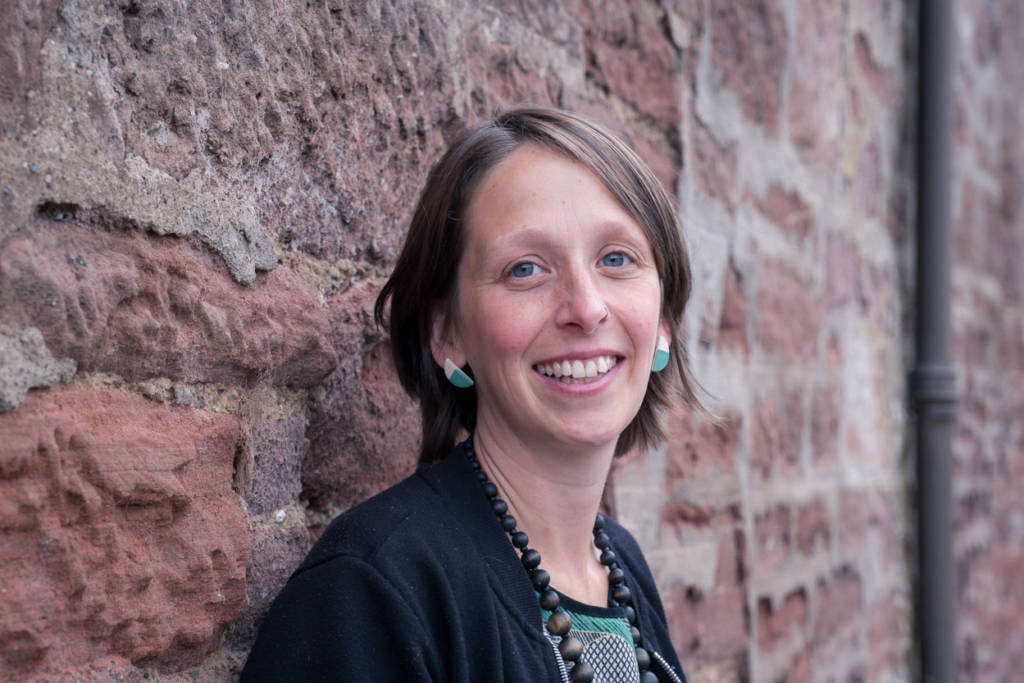
The Cateran Ecomuseum and Alyth Development Trust have joined forces to launch Scotland’s first Museum of Rapid Transition aimed at harnessing people’s experience of natural and cultural heritage to mobilise rapid climate action and transition to more sustainable ways of living, and to show local people and visitors how the story of our past can help guide the story of our future.
Clare Cooper, co-director of the Cateran Ecomuseum, said, “We want to use visualisation of how the natural world of this part of Scotland has undergone continuous change for millions of years, to generate a collective imagination from the people of Alyth who will cast the timeline forward from the present to depict what the future of both its human and biotic communities could be if regenerative actions were taken.”
Nicky Bolland is a visual-artist, maker and community worker from Caputh. She’s currently nurturing a growing personal practice in ceramics and print-making whilst continuing to develop her community arts practice. This work occurs alongside her roles as a mother to two young children and a community worker with a small charity, Support Choices. Nicky has worked with communities across Scotland and internationally on a wide range of issues and using different creative methods. She enjoys building relationships, growing ideas and exploring big questions.
Nicky said, “Alyth is the first community in Perthshire where I spent meaningful time. I think of Alyth as a place with strong community networks where interesting things happen, but I know it is also a place where the climate crisis is already felt – in the form of regular flooding, exacerbating the existing challenges that so many small rural communities face.
“There is often an active tension in rural communities between what has come before and what might lie ahead. I see this project as an opportunity to meaningfully address these tensions, through compassionate dialogue, taking the heritage of Alyth as the springboard for co-creating a different future. I can’t wait to get talking to the locals, including the younger generation, find out what they think and use the lessons from the past to shape a better and more sustainable future.”
Read more about Nicky’s collaboration with The Cateran Ecomuseum and Alyth Development Trust in this guest blog: Playing for the Future.
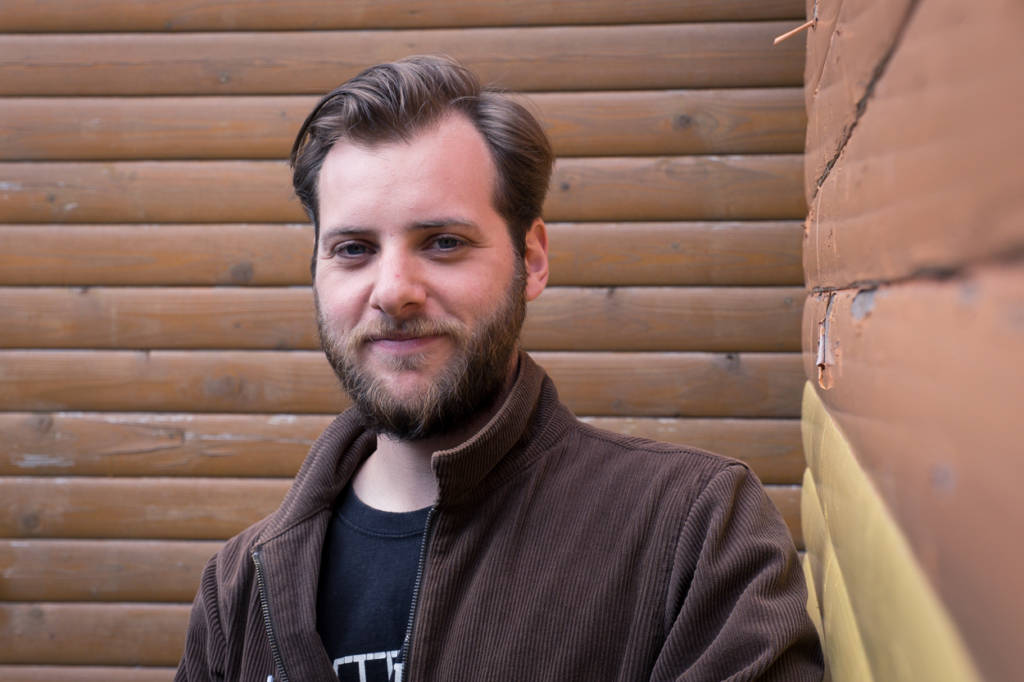
The MAXwell Centre and their community garden team provide a welcoming and empowering environment where groups and individuals of all ages and backgrounds can learn and share, grow and socialise. They support people to address issues affecting them such as poverty, poor health and social isolation through dignified, creative and sustainable solutions.
Manuela de los Rios, Garden Mentor at the MAXwell, said, “We want to find creative ways to engage more people from our community to share skills and tools, reuse, upcycle and improve the place we live, work and play in. Our ambition is to encourage them to connect with each other and with opportunities in our neighbourhood, enjoy the natural and built environment and feel safe and happy.“
Finlay Hall, who will be studying Horticulture at the Scottish Rural College from September, is a Fine Art graduate of Duncan of Jordanstone College of Art and Design. Finlay is one of the collaborators who started Wooosh Gallery – a DIY art gallery in a car park on Dundee’s Perth Road. He enjoys trying and getting people to reimagine the world around them and make use of materials and places that are readily available – allowing them to see the places around them in a different light and be able to then execute their own projects in those spaces.
Finlay said, “The MAXwell Centre’s ambitions really appeal to me and it’ll be a privilege to work with their community of amateur gardeners and growers. I’m also looking to talk to those who don’t use the space and explore why that is. I can’t wait to suggest and facilitate different approaches to drum up engagement but also widen access to projects like the tool library which really strengthen community bonds, encourage dialogue between residents and promote learning and pastimes.
“Personally, gardening feels good for my soul and a nurturing activity which can really help those struggling with stresses related to poverty, poor health or social isolation. Lockdown has made us appreciate our open spaces even more but, like me, not everyone has their own garden, so the community garden is an amazing resource which communities can really take ownership of. I’d love whatever I do at the MAXwell Centre to leave a lasting legacy which others can enjoy and benefit from.”
Read more about Finlay’s collaboration with The MAXwell Centre in this guest blog: Breaking Down Social Barriers Through Music and Gardening.
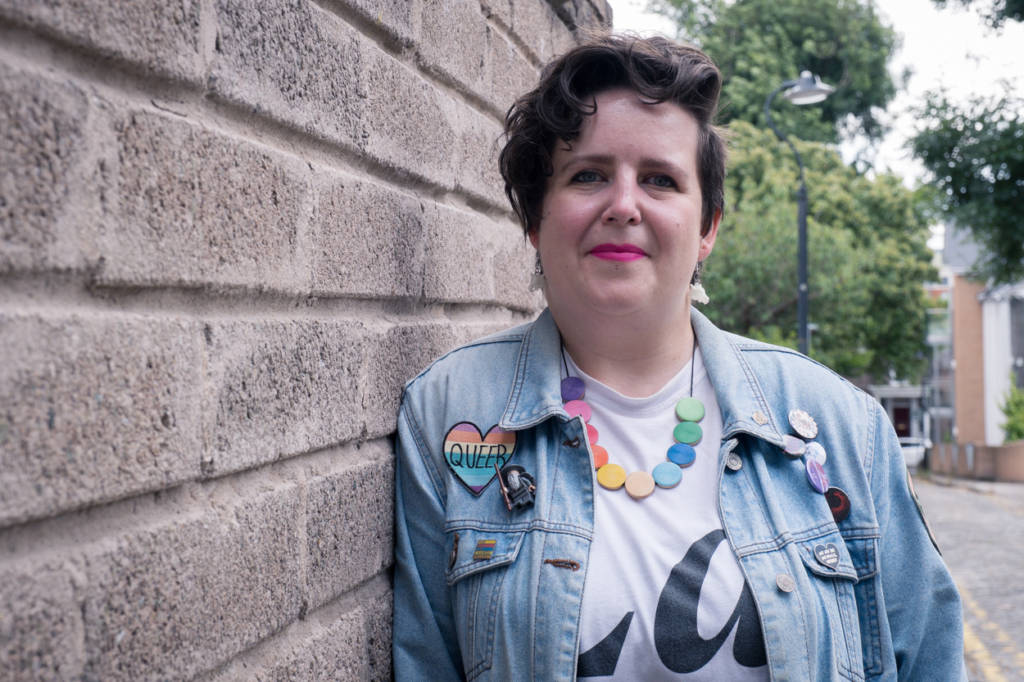
The Gate Church Carbon Saving Project is a climate action project to lower the collective carbon footprint of our community through waste-reducing whilst helping those experiencing poverty first, and to inspire people to make more sustainable choices to help us transition to a greener, but also fairer future.
Lynsey Penny, Senior Project Coordinator, said, “We want to tackle the stigmas attached to re-using, taking things for free/cheap and particularly with clothes. Our ambition through our Community Wardrobe project is to reach more people and save more items from going to waste – our planet needs it!”
Jade Anderson is a Queer, Working Class, Mother, Actor, Theatre Maker and Facilitator. After seeing her first play aged 21 (Equus at Dundee Rep) Jade left her law degree to focus on the arts joining Dundee Reps Community Company and volunteering with their Creative Learning Department. Over the years through the continued support from family, friends and colleagues at Dundee Rep Jade went on to train at Dundee & Angus College gaining her HND in Acting & Performance in 2016 and then moving on to get her BA (Hons) in Acting for Stage & Screen at Queen Margaret and Edinburgh Napier University in 2019.
Jade is now focused on creating her own work that celebrates working class Dundee and promotes the beautiful Dundonian Scots Language. Jade’s goal is to establish, nurture and sustain a long lasting working relationship with the communities of Dundee so that she can continue to create and perform in new theatre for and with the community.
Jade said, “Having grown up in some of the most deprived areas in the city, I’ve battled with alcohol abuse and the stigma of being a young mum so I really appreciate the importance of community and what I see as ‘the healing powers’ of the arts.
“Through previous work, I’ve noticed that a lot of people from deprived backgrounds see the arts, especially the performing arts, as neither accessible or relevant. I’d love to change that and shape a creative partnership with the communities. Yes, there’s lots going on down at the Waterfront but we need to do more to reach out to others. Everyone has a voice and a story to tell and the right to tell that story.
“I love the idea of tackling the stigma that goes along with wearing second-hand clothing. I’ve seen family members go without or get into debt to put their children in new, branded clothing so finding a way to make second-hand the first option really appeals to me. It’s not just about saving the planet but also the mental health of those affected by poverty.”
Read more about Jade’s collaboration with The Gate Church Carbon Saving Project in this guest blog: Theatre, Healing and Community.
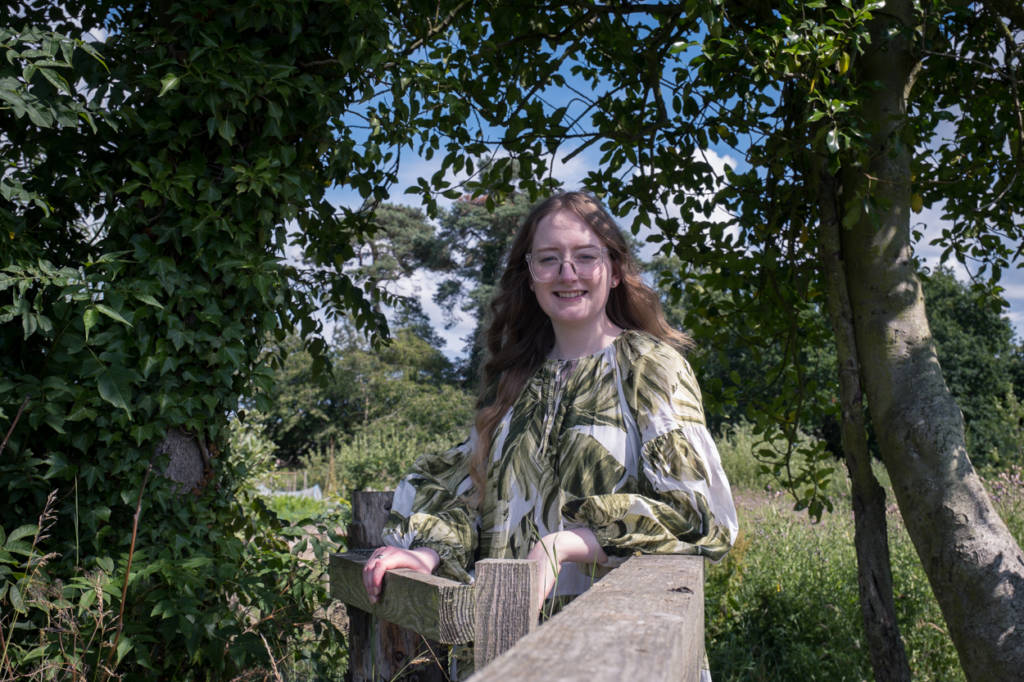
People Learning About Nature in Tayport (PLANT) brings people together to grow, learn and socialise in their community garden, while reducing carbon emissions and enhancing Tayport’s natural environment. They also host Carbon Conversations to support people with cutting personal carbon footprints and raising awareness of climate emergency and action.
Kaska Hempel, PLANT Blog and Carbon Conversation Coordinator, said, “We want to bring people together to create memories of a better future and to come up with specific community projects Tayport can focus on over the next 10 years. Our ambition is to involve as many people and organisations as we can through this process, making it creative, exciting and hopeful, as well as generating a conversation between generations and hearing our young people’s voices.”
Zoë Swann is a multi-disciplinary creator who works in illustration, video and music. Originally from Paisley, she moved to Dundee to study at DJCAD and has stayed since graduating last year. Her ambition is to create uplifting, optimistic work that is accessible to everyone. She loves thinking about the future and all of the possibilities it holds, and is especially interested in the part that creative practitioners could play.
Zoë said, “With the Tayport Climate Festival and the 2021 United Nations Climate Change Conference (COP26) in Glasgow later this year, 2021 is a pivotal year for Tayport and one when great things could happen! I always try to live as sustainably as possible so PLANT really speaks to me, especially their community focus and desire to make their work as accessible as possible. That’s where I think I can really help bring the community together, hear about their dreams and goals for Tayport and beyond and help facilitate the actions we need to take. We’re particularly keen to engage new faces, to hear their voices and ensure that everyone is heard.
“From my own perspective, having graduated last year, it’s been really difficult to connect with groups and be involved in the community so this is also an excellent opportunity to reach out to the wider creative community, make connections and open the door to future collaborations.”
Read more about Zoë’s collaboration with PLANT in this guest blog: Community Ownership in Shaping the Future.

Community First is about meeting the needs of our communities and those needs are best identified by lived experiences of the community themselves. We support our communities to identify and develop skills and knowledge, and as a result of their learning and experiences, increase in confidence at home, work and in their community lives.
Pauline Lockhart, co-founder of Community First, said, “Through our Social Supermarket S-Mart and Eco-friendly recycling shop BRAND, we want to inspire the next generation of eco warriors and encourage more people to reuse, upcycle and connect to make more sustainable choices whilst ensuring our message of reducing the stigma of poverty by providing choice and dignity, are at the core.”
Jeni Reid is an artist who lives and works in Angus using digital and alternative process photography, combined with paper and textiles to explore ideas about history, memory and belonging. She’s currently working with Arbroath 2020+1 on a project reflecting the town’s linen industry, placing large cyanotype prints in civic spaces. Previously a Social Worker specialising in mental health support, Jeni likes second hand clothes and other people’s stories. She’s easily distracted by seagulls.
Jeni said, “As a regular customer of S-Mart, I’m touched by the trust the organisation has already built up within the local community. It’s not just a shop, it’s a recognised meeting place which sparks meaningful relationships – essential for any positive change. We’ll be spending dedicated time getting to know the community, drilling down to the issues they face and pinpointing potential, locally-led solutions.
“Being part of the wider CULTIVATE network will also provide opportunities for networking, mentoring and sharing information and skills with other creatives which can only lead to better things!”
Kirsty McKeown is a Dundee based artist, working with materials and processes including collage, printmaking, analogue photography and altered objects, primarily using found materials and her immediate environment as inspiration. Her recent work explores duration and time using drawing, performance and film as a means of mapping environments. Kirsty has an interest in connecting and forming creative communities and since February 2021 has been making work as The Arbroath Correspondence School – an ongoing mail art project that rejects the expectation of 24/7 always on communication and seeks to reinstate a sense of human connection and mutual learning utilising the postal service for the distribution of slow art. She’s also co-organiser of Dundee Zine Fest as well as director of Chainworks Studios in Dundee, alongside this she teaches Art and Design at Glasgow Clyde College.
Kirsty added, “With experience in everything from formal teaching and artist-led activity to working with hard-to-reach communities and social work, we’re also passionate about drawing, photography, sewing and print-making so there’s lots of potential here. We like to think we can engage with anyone, regardless of any barriers or preconceived ideas they might have.”
Read more about Jeni and Kirsty’s collaboration with Community First in this guest blog: Food for Thought on Climate Justice.
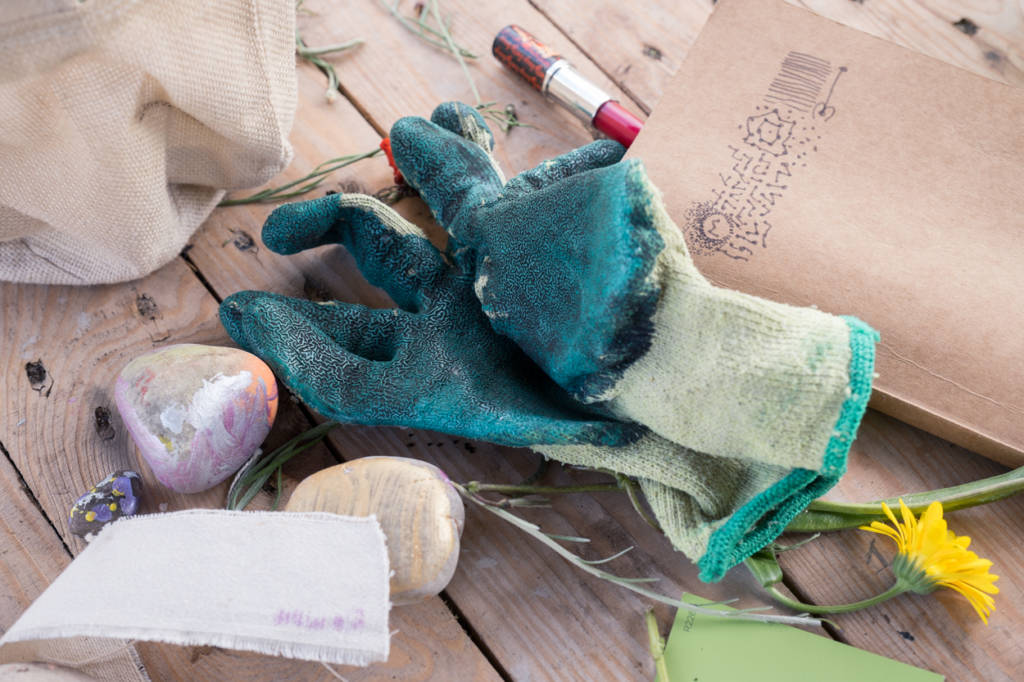
Read more about Creative Dundee’s CULTIVATE programme here.
Creative Dundee is one of 26 organisations to secure Culture Collective funding, delivered by Creative Scotland and part of a £6M Scottish Government emergency COVID-19 fund to help Creative Practitioners, organisations and communities develop ways of responding to the impacts of the pandemic.
Kathryn Welch, Culture Collective Programme Lead, said, “It’s a pleasure to welcome these artists and creative practitioners to CULTIVATE, and to the national Culture Collective network. By connecting their work with community-rooted projects and artists all across Scotland, there’s a real opportunity for these artists to support one-another, share their learning and expertise, and be part of a network advocating for the role that creativity can play in our communities.
“As the network grows, CULTIVATE’s new team will be able to connect their experiences in the Tay Region with the wider cultural and community sector – exploring and testing new models of engagement and participation that have the potential to shape the future of local cultural life.”
More news coming soon and a special thanks to David P Scott for the portraits!

If you would like to support us in creating even better content, please consider joining or supporting our Amps Community.